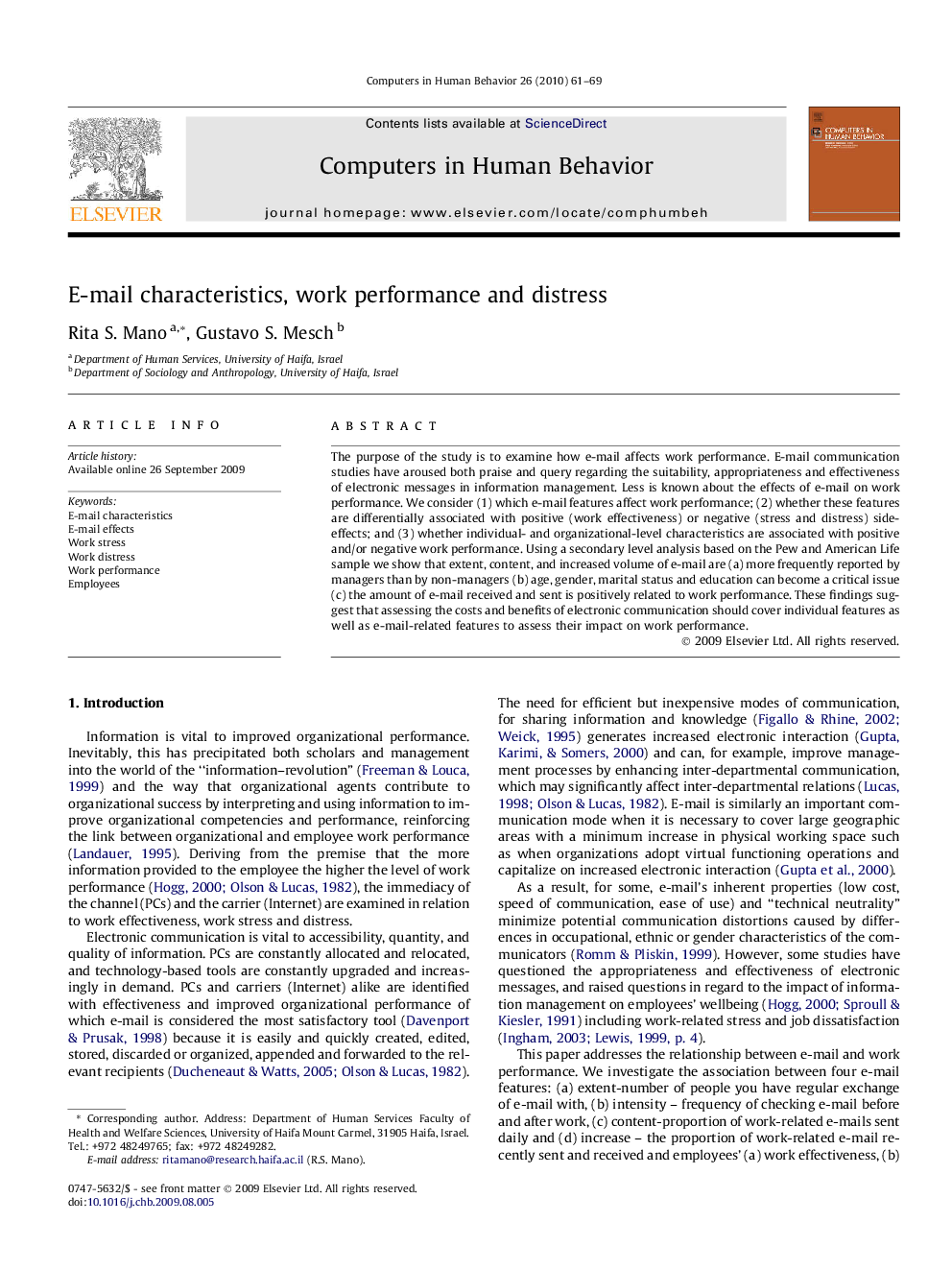| Article ID | Journal | Published Year | Pages | File Type |
|---|---|---|---|---|
| 352200 | Computers in Human Behavior | 2010 | 9 Pages |
The purpose of the study is to examine how e-mail affects work performance. E-mail communication studies have aroused both praise and query regarding the suitability, appropriateness and effectiveness of electronic messages in information management. Less is known about the effects of e-mail on work performance. We consider (1) which e-mail features affect work performance; (2) whether these features are differentially associated with positive (work effectiveness) or negative (stress and distress) side-effects; and (3) whether individual- and organizational-level characteristics are associated with positive and/or negative work performance. Using a secondary level analysis based on the Pew and American Life sample we show that extent, content, and increased volume of e-mail are (a) more frequently reported by managers than by non-managers (b) age, gender, marital status and education can become a critical issue (c) the amount of e-mail received and sent is positively related to work performance. These findings suggest that assessing the costs and benefits of electronic communication should cover individual features as well as e-mail-related features to assess their impact on work performance.
